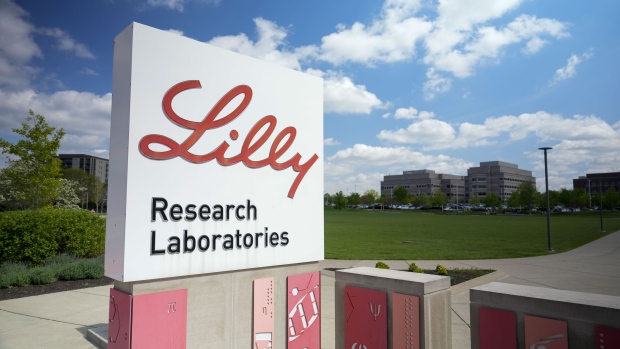Jul 2, 2024
Lilly Wins FDA Approval for New Drug to Slow Alzheimer’s Disease
, Bloomberg News

(Bloomberg) -- Eli Lilly & Co.’s Alzheimer’s treatment was cleared in the US as the second drug to slow progression of the mind-robbing disease that afflicts 6 million Americans.
It’s a big win for Lilly and its investors, who have been eagerly anticipating the drug since it showed promise in clinical trials more than three years ago. Called Kisunla, the medicine endured a number of regulatory delays on the road to approval. It will compete with Eisai Co.’s Leqembi, which has been available for sale in the US since early 2023.
Shares of Indianapolis-based Lilly closed down 0.8% Tuesday in New York. The stock had surged more than 50% so far this year before today amid rapid growth of weight-loss and diabetes sales. Shares of Eisai partner Biogen Inc. fell 1.3%
The Alzheimer’s drug will cost $32,000 in the first year of treatment, Lilly said. That’s slightly more than the $26,500 annual price for Leqembi for a person of average size. But doctors can stop the treatment if brain plaques — the toxic material that the drug removes — fall to minimal levels, which they did in many people in trials after about a year.
Lower Costs
That means that the total out-of-pocket treatment cost of the drug could sometimes be less than other amyloid drugs, Lilly said. In Leqembi’s main approval trial, patients were treated for a full 18 months.
The Eisai and Lilly products are both infusions that remove toxic amyloid from the brains of Alzheimer’s patients. They only modestly slow the disease and are approved only for people with early-stage Alzheimer’s, a minority of the total patient population with the disease. Side effects of both include brain swelling and brain bleeding.
Brain swelling or bleeding occurred in 36% of patients on Lilly’s drug in the company’s main study, and produced symptoms in 6% of them, according to the drug’s label. Regular scans are required to monitor for these effects. Lilly’s drug has a potential convenience advantage since it’s infused every four weeks, compared with every two for Leqembi.
Less frequent dosing and the potential to stop treatment are “a really big deal,” Howard Fillit, co-founder of the Alzheimer’s Drug Discovery Foundation, said in an interview before the approval.
Series of Delays
Lilly faced a series of delays bringing Kisunla to the market. In early 2023, the FDA refused to give the drug accelerated approval based on early trial results, telling the company it wanted to wait for a late-stage trial. When Lilly submitted that data, the FDA needed more time to review it. Then earlier this year, the agency decided late in the review process to convene a day-long hearing to review the drug’s safety and efficacy.
A panel of outside advisers to the FDA voted unanimously in favor of the drug on June 10.
“There’s a lot of emotion in the hallways today,” Anne White, president of Lilly Neuroscience, said in an interview before the approval. “We have portraits up on our walls of family members to remind us why we’re doing what we’re doing.”
Once considered integral to Lilly’s future, Alzheimer’s has been overshadowed by the company’s GLP-1 medicines that aid in weight loss, a market expected to reach $130 billion a year by the end of the decade, according to analysts at Goldman Sachs.
Sales of Alzheimer’s drugs are also expected to grow significantly. Bloomberg Intelligence analysts see sales surging to $13 billion by 2030 from about $250 million this year.
“Having multiple treatment options is the kind of advancement we’ve all been waiting for — all of us who have been touched, even blindsided, by this difficult and devastating disease,” said Joanne Pike, CEO of the Alzheimer’s Association, in a statement. The nonprofit has pushed hard for approval and broad insurance coverage for amyloid-lowering drugs.
Leqembi’s rollout by Eisai and partner Biogen Inc. has been slowed by logistical issues, reimbursement uncertainties and complicated safety testing requirements. Medicare, the US health program for the elderly, didn’t routinely cover the treatments until recently, and hospital neurology programs weren’t set up to perform the monitoring required to use the drugs.
(Adds side effect numbers in seventh paragraph, Alzheimer’s Association comment in penultimate.)
©2024 Bloomberg L.P.

